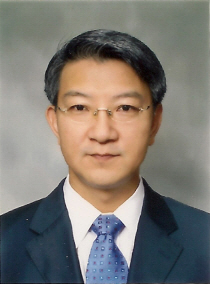people

Distinguished Professor Sang Yup Lee from the Department of Chemical and Biomolecular Engineering, KAIST, was invited to lead four sessions at the Annual Meeting 2014, the World Economic Forum, also known as the Summer Davos Forum, which was held in Tianjin, China, from September 10th to 12th.
Two of the four sessions Professor Lee participated in were held on September 10th. At the first session entitled “Biotechnology Ecosystem,” he examined with other panelists the future of bioengineering in depth and discussed major policies and industry trends that will be necessary for the development of future biotechnologies.
Professor Lee later attended the “Strategic Shifts in Healthcare” session as a moderator. Issues related to transforming the health industry such as the next-generation genomics, mobile health and telemedicine, and wearable devices and predictive analytics were addressed.
On September 12, Professor Lee joined the “IdeasLab with KAIST” and gave a presentation on nanotechnology. There was a total of ten IdeasLab sessions held at the Summer Davos Forum, and KAIST was the only Korean university ever invited to host this session. In addition to Professor Lee’s presentation, three more presentations were made by KAIST professors on such topics as “Sustainable Energy and Materials” and “Next-generation Semiconductors.”
Lastly, Professor Lee participated in the “Global Promising Technology” session with the World Economic Forum’s Global Agenda Council members. At this session, he explained the selection of the “World’s Top 10 Most Promising Technologies” and “Bio Sector’s Top 10 Technologies” and led discussions about the “2015 Top 10 Technologies” with the council members.
The Davos Forum has been announcing the “World’s Top 10 Most Promising Technologies” since 2012, and Professor Lee has played a key role in the selection while working as the Chairman of Global Agenda Council. The selection results are presented at the Davos Forum every year and have attracted a lot of attention from around the world.
-
research New Chiral Nanostructures to Extend the Material Platform
Researchers observed a wide window of chiroptical activity from nanomaterials A research team transferred chirality from the molecular scale to a microscale to extend material platforms and applications. The optical activity from this novel chiral material encompasses to short-wave infrared region. This platform could serve as a powerful strategy for hierarchical chirality transfer through self-assembly, generating broad optical activity and providing immense applications including bio, telec
2021-10-22 -
research ACS Nano Special Edition Highlights Innovations at KAIST
- The collective intelligence and technological innovation of KAIST was highlighted with case studies including the Post-COVID-19 New Deal R&D Initiative Project. - KAIST’s innovative academic achievements and R&D efforts for addressing the world’s greatest challenges such as the COVID-19 pandemic were featured in ACS Nano as part of its special virtual issue commemorating the 50th anniversary of KAIST. The issue consisted of 14 review articles contributed by KAIST facult
2021-03-05 -
research Ultrathin but Fully Packaged High-Resolution Camera
- Biologically inspired ultrathin arrayed camera captures super-resolution images. - The unique structures of biological vision systems in nature inspired scientists to design ultracompact imaging systems. A research group led by Professor Ki-Hun Jeong have made an ultracompact camera that captures high-contrast and high-resolution images. Fully packaged with micro-optical elements such as inverted micro-lenses, multilayered pinhole arrays, and gap spacers on the image sensor, the camera boasts
2020-03-23 -
research Ultrafast Quantum Motion in a Nanoscale Trap Detected
< Professor Heung-Sun Sim (left) and Co-author Dr. Sungguen Ryu (right) > KAIST researchers have reported the detection of a picosecond electron motion in a silicon transistor. This study has presented a new protocol for measuring ultrafast electronic dynamics in an effective time-resolved fashion of picosecond resolution. The detection was made in collaboration with Nippon Telegraph and Telephone Corp. (NTT) in Japan and National Physical Laboratory (NPL) in the UK and is the first
2019-11-05 -
people Chair Professor Jo-Won Lee Named Sixth President of National Nano Fab Center
< President Jo-Won Lee > Chair professor Jo-Won Lee from Hanyang University was appointed as the sixth president of the National Nano Fab Center (NNFC). President Lee will serve his term for three years from September 16. The NNFC is an affiliated institution of KAIST, established in 2002 to foster qualified manpower in the field of nanotechnology (NT) in Korea. The NNFC features cutting-edge NT-related research equipment and fabrication services, and provides students and researc
2019-09-17